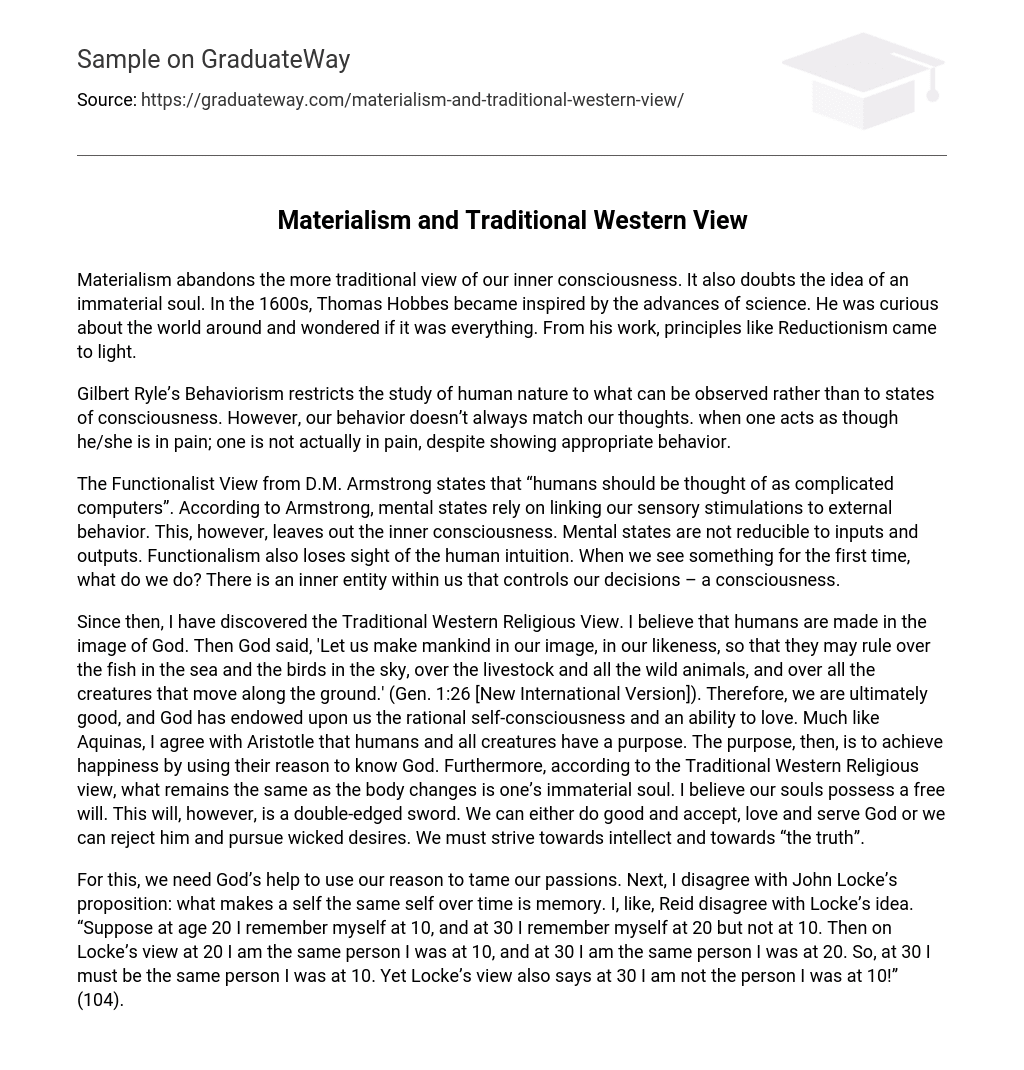Materialism abandons the more traditional view of our inner consciousness. It also doubts the idea of an immaterial soul. In the 1600s, Thomas Hobbes became inspired by the advances of science. He was curious about the world around and wondered if it was everything. From his work, principles like Reductionism came to light.
Gilbert Ryle’s Behaviorism restricts the study of human nature to what can be observed rather than to states of consciousness. However, our behavior doesn’t always match our thoughts. when one acts as though he/she is in pain; one is not actually in pain, despite showing appropriate behavior.
The Functionalist View from D.M. Armstrong states that “humans should be thought of as complicated computers”. According to Armstrong, mental states rely on linking our sensory stimulations to external behavior. This, however, leaves out the inner consciousness. Mental states are not reducible to inputs and outputs. Functionalism also loses sight of the human intuition. When we see something for the first time, what do we do? There is an inner entity within us that controls our decisions – a consciousness.
Since then, I have discovered the Traditional Western Religious View. I believe that humans are made in the image of God. Then God said, ‘Let us make mankind in our image, in our likeness, so that they may rule over the fish in the sea and the birds in the sky, over the livestock and all the wild animals, and over all the creatures that move along the ground.’ (Gen. 1:26 [New International Version]). Therefore, we are ultimately good, and God has endowed upon us the rational self-consciousness and an ability to love. Much like Aquinas, I agree with Aristotle that humans and all creatures have a purpose. The purpose, then, is to achieve happiness by using their reason to know God. Furthermore, according to the Traditional Western Religious view, what remains the same as the body changes is one’s immaterial soul. I believe our souls possess a free will. This will, however, is a double-edged sword. We can either do good and accept, love and serve God or we can reject him and pursue wicked desires. We must strive towards intellect and towards “the truth”.
For this, we need God’s help to use our reason to tame our passions. Next, I disagree with John Locke’s proposition: what makes a self the same self over time is memory. I, like, Reid disagree with Locke’s idea. “Suppose at age 20 I remember myself at 10, and at 30 I remember myself at 20 but not at 10. Then on Locke’s view at 20 I am the same person I was at 10, and at 30 I am the same person I was at 20. So, at 30 I must be the same person I was at 10. Yet Locke’s view also says at 30 I am not the person I was at 10!” (104).





